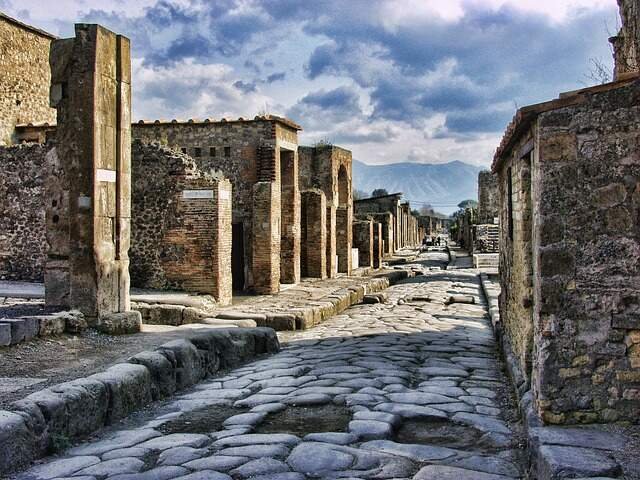A Brief History of the University of Bologna
The University of Bologna, established in 1088, holds the distinction of being the oldest university in continuous operation in the world. Its origins can be traced back to a group of scholars who came together to define a new paradigm of higher education, motivated by the desire for knowledge and an improved understanding of law and humanities. This remarkable institution was founded by students and for students, a form of collective knowledge that would pave the way for future universities across Europe.
Throughout its history, the University of Bologna has played a significant role in the evolution of higher education. During the Middle Ages, it became a pivotal center for the study of Roman law, attracting notable scholars such as Irnerius, who is often considered the founder of the institution’s prestigious law school. The university’s emphasis on student governance and independence set a precedent for modern educational institutions, fostering an environment where academic freedom could flourish.

Key milestones in the university’s history include the establishment of the first student guilds and the introduction of the degree system, which officially recognized scholarly achievements. Influential figures such as Dante Alighieri and Petrarch, who were later associated with the Renaissance, further enriched its intellectual atmosphere. The university also embraced a multidisciplinary approach, offering courses in medicine, philosophy, and the arts, thereby broadening the scope of higher education.
As Europe transitioned into the Renaissance, the University of Bologna maintained its stature as a beacon of learning, influencing various fields such as law, philosophy, and medicine. Its historical significance in shaping educational practice and thought cannot be overstated. Today, the University of Bologna remains dedicated to fostering a vibrant academic community, while its rich heritage continues to inspire scholars around the globe.
Academic Programs and Research Opportunities

The University of Bologna, established in 1088, is renowned for its rich educational offerings and commitment to research excellence. The university presents a wide array of academic programs for both undergraduate and postgraduate students. With a multitude of faculties, it caters to diverse fields such as humanities, sciences, engineering, and law. Each program is structured to provide students with a comprehensive education, focusing on both theoretical understanding and practical application.
Undergraduate programs include degrees in literature, philosophy, and sociology within the humanities. The Faculty of Sciences offers degrees ranging from natural sciences to environmental studies. Engineering students can choose from various specializations, emphasizing technological and innovative developments. Law students are engaged in a rigorous curriculum that prepares them for various legal professions. This vast selection of academic programs not only caters to individual student interests but also opens up numerous career pathways.
At the postgraduate level, the university emphasizes research-driven education. Master’s degrees and doctoral programs encourage deep exploration of subjects, preparing graduates to contribute significantly to their fields. The University of Bologna places a strong emphasis on research opportunities, promoting an environment where both students and faculty can engage in groundbreaking projects. Research initiatives are often interdisciplinary, combining insights from different areas to address complex global challenges, including sustainability, public health, and social justice.
Moreover, the commitment to fostering collaboration amongst departments enhances the university’s academic community. Initiatives such as research grants, workshops, and conferences support innovation and scholarship, positioning the University of Bologna as a leader in both education and research. This blend of rigorous academic programs and extensive research opportunities ensures that students are well-prepared to become contributors to society and leaders in their chosen fields.
Campus Life and Student Experience
Campus life at the University of Bologna offers a vibrant blend of academic rigor and cultural immersion, which significantly enhances the student experience. The university boasts a diverse array of student organizations catering to various interests, from academic clubs to leisure activities. These organizations provide a platform for students to connect, collaborate, and engage in extracurricular activities that foster personal growth and social interaction.
Extracurricular activities play a crucial role in shaping campus culture. The university hosts numerous events throughout the academic year, including workshops, conferences, and cultural festivals. These events not only enrich the learning experience but also encourage networking among students from different backgrounds. Participation in such activities helps students develop a sense of belonging within the community, fostering friendships and connections that often last a lifetime.
For international students, the University of Bologna is particularly welcoming. The institution offers various support services designed to assist newcomers in acclimating to their new environment. This includes orientation programs, language support, and dedicated counseling services. Such measures ensure that all students, regardless of their origin, feel integrated and valued within the university’s diverse ecosystem.
Living arrangements for students are varied and abundant, with options ranging from university residences to private accommodations. Each choice provides unique features, allowing students to select the best fit for their lifestyle and needs. Dining options are equally diverse, including cafeterias, restaurants, and grocery stores that cater to various dietary requirements. This ensures that students not only have access to nutritious food but also an opportunity to explore local cuisine.
Overall, the University of Bologna fosters an inclusive and dynamic atmosphere that enhances the overall student experience, making it an exceptional place for personal and academic development.
The University of Bologna Today and Its Future
The University of Bologna, founded in 1088, retains its status as a prestigious institution in the contemporary academic landscape. Currently, it ranks among the top universities globally, consistently featuring in various international assessments. This standing reflects the university’s commitment to high-quality education, research excellence, and its proactive approach to modernization. In the field of education, the university is a pioneer in adopting innovative teaching methodologies that cater to the diverse learning needs of its students.
One key aspect of the university’s impact today is its extensive research output. The University of Bologna has cultivated a dynamic research environment that not only contributes significantly to academic knowledge but also addresses real-world challenges. Through interdisciplinary collaborations and state-of-the-art facilities, faculty and students engage in groundbreaking research that spans multiple fields. The institution is equally dedicated to fostering innovation by supporting entrepreneurial initiatives and creating avenues for collaboration with industry stakeholders.
Looking towards the future, the University of Bologna is undertaking several initiatives aimed at enhancing its academic programs. These initiatives include curricular reforms that integrate emerging fields of study and prioritize critical thinking and problem-solving skills. Additionally, efforts to expand international partnerships are underway, cementing the university’s commitment to a global academic community. As the higher education landscape evolves, the University of Bologna is positioned to adapt while upholding its tradition of educational excellence. By embracing change and fostering a culture of continuous improvement, the university aspires to remain at the forefront of academic leadership, setting the stage for future generations of scholars and innovators.


